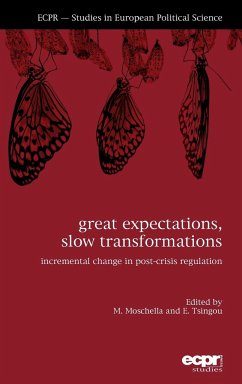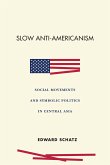In the aftermath of the financial crisis, why have reforms been incremental, despite the fact that conditions for rapid transformation appeared to be available? Is there anything specific about financial policy that prevents more radical reforms? Drawing from comparative politics and historical institutionalism in particular, as well as international political economy, this book answers these questions by examining the particular institutional frictions which characterise global financial governance, and which influence the activity of change agents and veto players involved in global regulatory change. Chapters demonstrate that the process of change in financial rule-making, as well as in the institutions governing finance, do not fit with the punctuated model of policy change. They also show, however, that incremental changes can lead to fundamental shifts in the basic principles that inform global financial governance.
Hinweis: Dieser Artikel kann nur an eine deutsche Lieferadresse ausgeliefert werden.
Hinweis: Dieser Artikel kann nur an eine deutsche Lieferadresse ausgeliefert werden.








